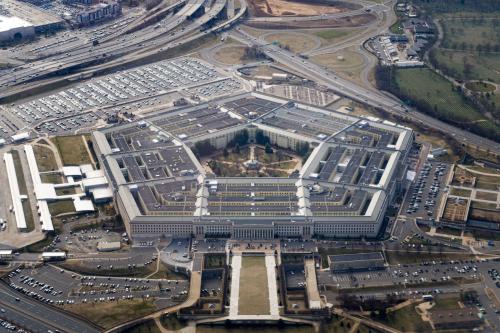Both the American project to spread democracy in the Middle East in the aftermath of Sept. 11 and the Iraq War were doomed from the outset. That’s not because the Middle East is incompatible with democracy, but because the project was based on contradictions and erroneous assumptions.
Spreading democracy as a goal of American foreign policy is not new. Even in the Middle East, the administration of President George H. W. Bush pushed for democratic reform as a priority in 1989 and was instrumental in promoting elections in Jordan and elsewhere. During the first few months of the Clinton administration, Secretary of State Warren Christopher spoke of democracy and reform and raised the issue with Arab leaders.
The outcome was telling. Not only did Islamists do well in elections in Jordan and Algeria, but those countries that reformed were the most reluctant to cooperate with the United States after Iraq invaded Kuwait in 1990. In the second case, the Clinton administration’s need to rally support for the emerging Oslo agreements once again sidelined the democracy question.
But since Sept. 11, the policy of spreading democracy was sold as a strategic objective, not merely as part of spreading American values. The assumption was that the terrorism that America faced was, in part, a function of the absence of democracy in the Middle East. That this notion had little factual support mattered little. Much of the literature shows that moving from authoritarianism to democracy is unpredictable and destabilizing. Thus, it should have been clear from the outset that neither the public in America nor the public in the Middle East would see benefits that justified the course. Even worse, the very terrorism that elevated the democracy policy in America’s priorities was likely to increase, as it thrives where central authority is weak and instability is widespread.
Indeed it is ironic that the three countries that were highlighted as true successes of the democracy policy—Iraq, Lebanon, and Palestine—are now the subject of considerable concern and instability. But there is more about the troubling dynamics in places like Egypt and Saudi Arabia where something else worked against the spread of democracy.
At the same time that the United States asked governments to reform, it also asked them to support policies in Iraq, the fight against terrorism and the Arab-Israeli issue that the majority of their publics opposed. Most could not resist America’s requests, but in the process they felt even more insecure as their public grew angry, and they unleashed the security services to prevent revolts—even as they held limited elections. It is not surprising that in every public opinion poll I have conducted since 2003 most Arabs believed that the Middle East had become even less democratic than it was before the Iraq War.
The Arab governments’ view that the advocacy of democracy was instrumental in this was matched by a similar view among the public. Public opinion polls in Egypt, Saudi Arabia, Morocco, Jordan, the United Arab Emirates and Lebanon have shown consistently that fewer than 10 percent of Arabs believe that the spread of democracy was a true American objective, with most believing that oil, Israel and weakening the Muslim world drive American policy in the region. This was true even before anarchy spread in Iraq, but the latter, coupled with revelations of scandals, such as the Abu Ghraib prison abuses, only reinforced the public perceptions. The seeming rejection of the outcome of Palestinian elections once Hamas won and the feeling that America is doing little to end the occupation in the West Bank and Gaza have added to Arab skepticism.
It isn’t that Arabs have substantially different views of democracy. When asked to name the countries they believe have the most democracy and freedom for their people, all their top choices are Western, democratic countries, including the United States. When they are asked to choose countries outside their own where they would like to live or study, most select Western countries, not China or Pakistan. In the end, most Arabs, like others, want freedom and a system in which their voices count. But even more, they want security for their families, and they reject foreign occupation and anarchy. The very American policy that was said to be aimed at spreading democracy increased the conditions that terrify the public and reduced the attraction of democracy itself. If Iraq is an example of the democratic change one can expect, who, anywhere, would want it?
The Brookings Institution is committed to quality, independence, and impact.
We are supported by a diverse array of funders. In line with our values and policies, each Brookings publication represents the sole views of its author(s).



Commentary
Op-edHow to Not Spread Democracy
September 17, 2007